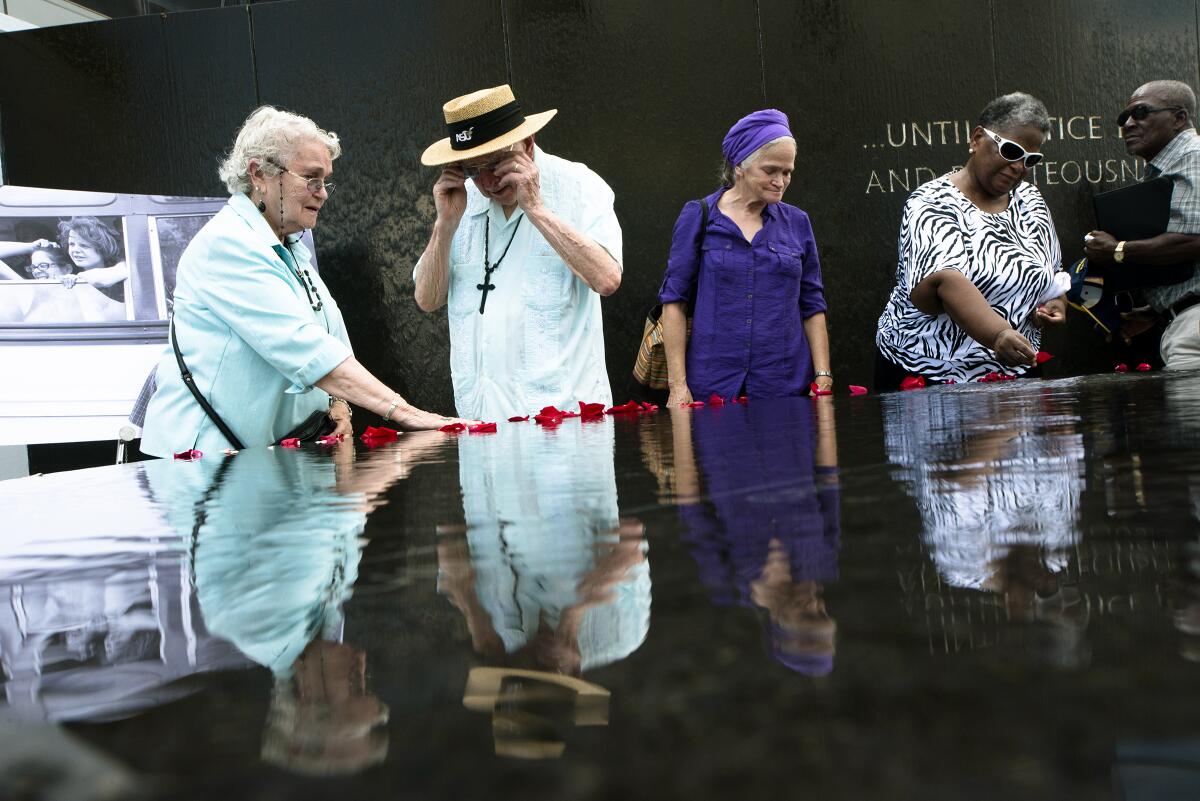Jean Graetz, early white civil rights activist who joined bus boycott, dies at 90

- Share via
Jean Graetz, an early white supporter of equal rights for Black people in Alabama at the start of the civil rights movement, has died at her home in Georgia.
Recently diagnosed with lung cancer, Graetz died less than three months after the death of her husband, the Rev. Robert Graetz, the only white minister to openly support the Montgomery bus boycott, said Ken Mullinax, a friend who announced her death Wednesday on behalf of the family. She was 90.
“She was one of the finest people I ever knew,” Mullinax said. “I could just cry right now.”
Jean and Robert Graetz moved to Alabama in 1955, the same year that Black seamstress and activist Rosa Parks refused to move to the back of a city bus, sparking a yearlong boycott that often is considered the start of the modern civil rights movement.
A young pastor at the time, the Rev. Martin Luther King Jr., rose to national prominence during months of protests that ended when the U.S. Supreme Court ruled that segregated public buses were unconstitutional.
In a state where racial segregation was the law and relatively few white people supported change, Jean and Robert Graetz were friends with Parks, King and his wife, Coretta Scott King, said Mullinax. Known as “Jeannie” to many, Jean Graetz was a “full partner” with her husband in openly, actively supporting civil rights, he said.
“She was at the vanguard of the birth of the modern civil rights movement,” said Mullinax, who also is the spokesman at Alabama State University, the historically Black university where Jean Graetz graduated with an education degree five years ago at 85.
Robert Graetz, the minister of the majority-Black Trinity Lutheran Evangelical Church in Montgomery, was the only white clergyman in the area to support the boycott. He and his wife faced harassment, threats and bombings as a result.
The parsonage where the couple lived was twice targeted by bombs, once when they were away and again in 1957, not long after the boycott ended, in a wave of attacks on civil rights leaders and churches.
Speaking this year in an interview with a Lutheran publication, Jean Graetz said their activism was linked to the idea of “beloved community,” a vision of love and justice that King sometimes mentioned.
“There is no such thing as race,” she said. “Scientists know this; we all have the same DNA, we’re all brothers and sisters, and we need to act like this is true.”
More to Read
Start your day right
Sign up for Essential California for the L.A. Times biggest news, features and recommendations in your inbox six days a week.
You may occasionally receive promotional content from the Los Angeles Times.






